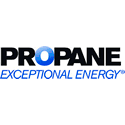
| Monday, December 03, 2012 | Archives | Advertise | Online Buyer's Guide | FLEETSolutions |
Hydrogen Fuel-Cell Cars Look To Overtake Electric
 As electric cars try to forge more than just a niche in the market, the auto industry is already looking to another form of clean technology that could overtake today's battery-powered vehicles. Commitments by automobile manufactures to develop hydrogen fuel-cell cars have surged in recent months. Toyota, Hyundai, Daimler, and Honda announced plans to build vehicles that run on the most abundant element in the universe and emit only water vapor as a byproduct. As electric cars try to forge more than just a niche in the market, the auto industry is already looking to another form of clean technology that could overtake today's battery-powered vehicles. Commitments by automobile manufactures to develop hydrogen fuel-cell cars have surged in recent months. Toyota, Hyundai, Daimler, and Honda announced plans to build vehicles that run on the most abundant element in the universe and emit only water vapor as a byproduct.A fuel-cell-powered car can travel much longer distances than battery-powered ones before needing to be refueled, and fuel cells can be more readily used in large vehicles like trucks and SUVs. Hyundai has announced that it will offer a fuel-cell version of its ix35 sport utility vehicle (known as the Tucson in the U.S.) on lease by the end of this year. It plans to make up to 1,000 fuel-cell cars by 2015 and thereafter 10,000 fuel-cell cars per year. Byung Ki Ahn, General Manager of Fuel-Cell Research at Hyundai, said the company's fuel-cell vehicles are not directly competing with its battery-powered ones. "There might be some overlapping in-between, but basically, our strategy is that we are developing fuel cells for heavier and mid-size cars and (battery-powered) electric vehicles for smaller ones," he said. Although Hyundai claims that it will be the first to offer fuel-cell vehicles commercially, other carmakers will be right behind it. Toyota and Honda have said they will release a fuel-cell car in 2015. The move within the auto industry to establish plans to mass produce fuel-cell cars comes as the battery-powered electric car industry appears to be gaining traction. While battery powered electric vehicles do not emit pollutants, harmful emissions are nevertheless emitted from power plants where the electricity is often generated. Also a type of electric vehicle, a fuel-cell car takes hydrogen gas and converts it into electricity, while emitting only water vapor. But the processes used for extracting and transporting hydrogen can be energy intensive and rely on fossil fuels. The advantages fuel-cell vehicles have over cars like the Leaf and Volt are shorter refueling times and greater range. One major barrier to wide-spread adoption of fuel-cell cars is the need for a network of refueling stations, which according to analysts cost upward of $1 million each to build. But hydrogen-powered cars cannot exist without hydrogen filling stations, and vice versa. "It has been a chicken-and-egg issue for at least a couple of decades: vehicle first or gas station first?" Ahn said. According to the website of the U.S. Department of Energy, the country has nine public refueling stations, all located in California. Countries including Germany, Denmark, and South Korea have plans to roll out dozens of stations in coming years. |
 |
NAFA Fleet Management Association 125 Village Blvd., Suite 200 Princeton, NJ 08540 Telephone: 609.720.0882 Fax: 609.452.8004 |








